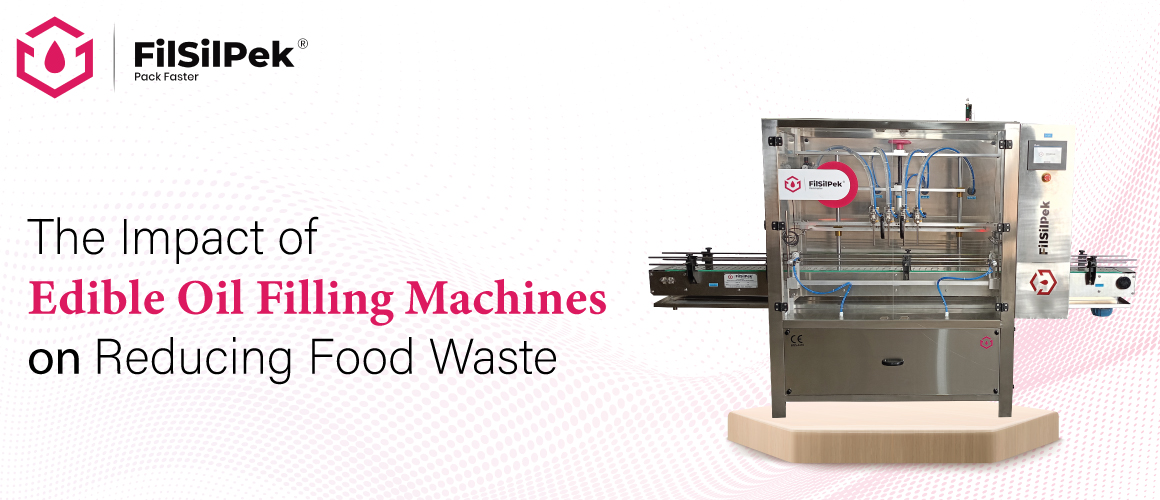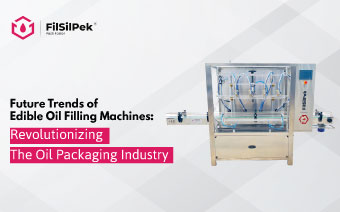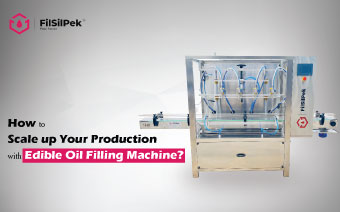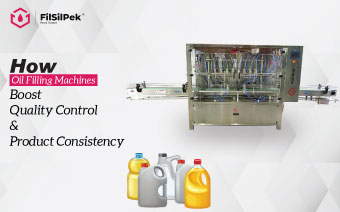The Impact of Edible Oil Filling Machines on Reducing Food Waste
Food waste is a significant global issue, with millions of tons of food discarded each year. One area that often goes overlooked in discussions about food waste is the packaging process, particularly in the edible oil industry. Edible oil filling machines play a vital role in this sector, not only improving efficiency but also contributing to waste reduction.
In this article, we will explore how these machines help minimise food waste, the technology behind them, and their benefits to manufacturers and consumers alike.
Understanding Food Waste in the Edible Oil Industry
Before diving into the specifics of edible oil filling machines, it’s essential to grasp the scale of food waste in the edible oil industry. Food waste can occur at various stages, from production and transportation to packaging and consumption. In particular, inefficient filling processes can lead to spills, overfilling, and product loss.
According to the Food and Agriculture Organization (FAO), about one-third of all food produced globally is wasted, with significant contributions from poor handling and packaging practices. Reducing this waste is crucial for both environmental sustainability and economic efficiency.
How Edible Oil Filling Machines Work?
Edible oil filling machines are advanced systems designed to optimise the packaging process by ensuring precise filling, efficiency, and minimal waste. They utilise various filling mechanisms tailored for different types of oils and packaging needs. Common methods include volumetric filling, which measures the volume of oil dispensed using a piston or gear pump, gravimetric filling, which weighs the container as it fills using load cells, and time-flow filling, which controls the fill based on preset time intervals.
Key components of these machines include filling nozzles that ensure drip-free dispensing, control systems for setting parameters like fill volume and speed, and conveyor systems that transport containers smoothly through the filling station. Many machines incorporate sensors to monitor the filling process, detect fill levels, and provide feedback for real-time adjustments. This integration allows for automated operations, often as part of a larger packaging line that may include labelling, capping, and packing systems.
Modern edible oil filling machines may also feature robotics and AI for enhanced efficiency, along with data analytics capabilities to track production metrics. Sanitation is a priority, with quick-release components for easy cleaning and materials made from food-grade stainless steel to comply with safety standards. The machines are designed to be adaptable, allowing for quick adjustments to accommodate various oil viscosities and container sizes.
The Benefits of Edible Oil Filling Machines in Waste Reduction
Investing in high-quality edible oil filling machines can have several positive outcomes for manufacturers and the environment:
Dynamic Fill Adjustment
Many modern filling machines feature dynamic fill adjustment capabilities. This technology allows for real-time modifications to the fill volume based on variations in container size or oil density. By automatically recalibrating during operation, these machines ensure consistent fill levels across different batches, significantly reducing the chances of underfilling or overfilling.
Leak Detection Systems
Advanced filling machines often include integrated leak detection systems. These systems can identify any leaks in the filling process and immediately halt operations to prevent further waste. By addressing leaks proactively, manufacturers can save on both product loss and the costs associated with cleanup and rework.
Minimised Spillage and Loss
By ensuring accurate fill levels, these machines drastically reduce the amount of oil wasted during the filling process. This not only cuts down on product loss but also enhances overall operational efficiency. The reduction in spillage also translates to a cleaner production environment.
Extended Shelf Life of Products
Efficient filling processes help maintain the quality of edible oils, extending their shelf life. Oils that are filled accurately and stored correctly are less likely to spoil or degrade, reducing the likelihood of waste at the consumer level.
Cost Efficiency
Less food waste translates to lower costs for manufacturers. By minimising product loss, companies can maximise their profit margins. This financial incentive often leads to more investments in advanced filling technologies, creating a cycle of efficiency and sustainability.
Environmental Benefits
Reducing food waste contributes to lower greenhouse gas emissions and less strain on landfills. When food waste decomposes in landfills, it releases methane, a potent greenhouse gas. By decreasing the amount of edible oil wasted, manufacturers can play a part in combating climate change.
Data-Driven Optimization
With the incorporation of IoT (Internet of Things) technology, many edible oil filling machines are equipped with data analytics tools that monitor performance metrics in real time. This data can be used to identify trends, inefficiencies, and areas for improvement. By analysing this information, manufacturers can optimise their filling processes, reducing waste and enhancing overall operational efficiency.
In a nutshell
Edible oil filling machines are game-changers in reducing food waste while boosting your production efficiency. They not only help you get the most out of your resources but also play a crucial role in creating a greener future for the industry.
So, if you’re eager to upgrade your packaging process and make a positive impact, why not drop us a line at [email protected]. We would love to chat about how we can help you take your operations to the next level!
Future Trends of Edible Oil Filling Machines: Revolutionizing the Oil Packaging Industry
The edible oil industry stands as a vital sector in the global food market, catering to a wide array of culinary and dietary needs. As the demand for edible oil…
How to Scale up Your Production with Edible Oil Filling Machine?
The pursuit of unmatched precision in the optimization of production processes is unrelenting in the complex world of edible oil manufacture. Modern solutions are required to address…
How Oil Filling Machines Boost Quality Control and Product Consistency
In the dynamic world of oil manufacturing, where every drop carries the promise of quality and consistency, the pursuit of excellence is unrelenting. The stakes are high – from meeting stringent…



